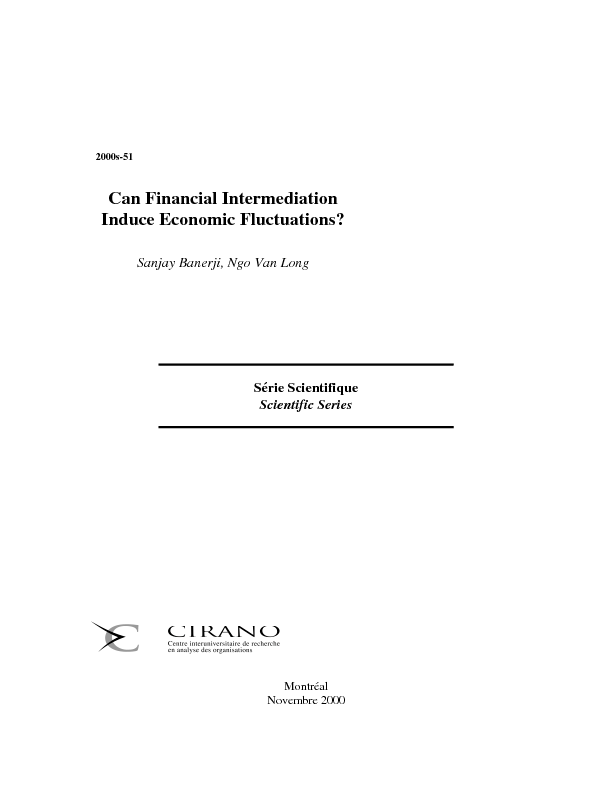Can Financial Intermediation Induce Economic Fluctuations?
We construct a model to show that active financial intermediation can induce economic fluctuations. We embed a financial sector in a simple overlapping generation model with a single stock of capital. Individuals are risk averse agents that face idiosyncratic risks in their business activities: Due to limited liability, agents have incentives to invest in a technology that produces high output with a smaller probability. Financial intermediaries (FIs) are risk neutral. We distinguish two scenarios. The first scenario is one with active financial intermediation: the FIs lends only on the conditions that borrowers accept restrictions on their investments. In the second scenario, financial intermediation is passive, in that the FIs lend without monitoring the activities of the borrowers. For a given loan size, the investment level under active financial intermediation is shown to be smaller than under passive financial intermediation. This fact alone creates, in the first scenario, an income effect that may generate fluctuations in investment. (This effect is absent under passive financial intermediation, and, as a result, in our model there are no fluctuations under passive financial intermediation.) Thus business cycles and possibly chaotic dynamics can be, under certain conditions, generated by active intermediation.
[ - ]




